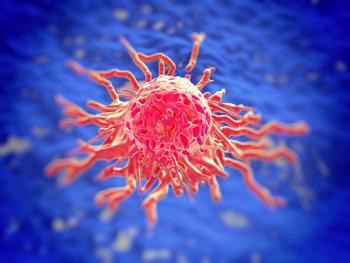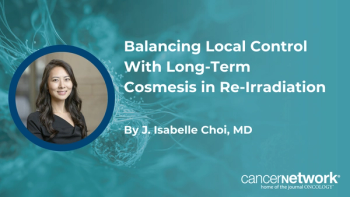
Drug Combination With Metformin Showed Positive Activity and Safety for Patients with HER2-Positive Breast Cancer
The combination of liposomal doxorubicin, docetaxel, and trastuzumab with metformin produced positive activity and an acceptable safety profile as neoadjuvant treatment for HER2-positive breast cancer.
Neoadjuvant treatment with liposomal doxorubicin, docetaxel, and trastuzumab (Herceptin) in combination with metformin for patients with HER2-positive breast cancer was safe and produced good activity, according to data published in Therapeutic Advances in Medical Oncology.
Although the combination produced favorable activity in this cohort of patients, the investigators noted that it did not improve activity over existing conventional sequential regimens.
“Based on our and others’ study results, metformin does not appear useful as a ‘one size fits all’ drug in HER2-positive breast cancer,” wrote the investigators. “Nonetheless, some patients could perhaps benefit from its use.”
Of the 47 evaluable patients, 18 (38.3%) experienced a pathological complete response (pCR; 95% CI, 24.5%-53.6%). It was noted that while estrogen receptor–negative status and high Ki67 levels were associated with pCR, histological grade 3 disease was the only factor with statistically significant pCR association.
The maximum standardized uptake value for 3-deoxy-3-18F-fluorothymidine (FLT)–PET was found to be inversely related with a pCR after 1 cycle of treatment (odds ratio, 0.29; 95% CI, 0.06-1.30; P = .11).
When evaluating the safety profile of the combination treatment, grade 3/4 hematologic events occurred in 70% of patients with neutropenia and 4% of patients with febrile neutropenia. More, 60% and 38% of patients experienced grade 1/2 nausea and vomiting, respectively; grade 3 nausea and vomiting was seen in in 4% and 2% of patients, respectively. Finally, grade 1/2 diarrhea was seen in 72% of patients, with 6% of patients having grade 3 diarrhea.
“These and other biomarkers, like tumor-associated alterations in the cellular signaling pathways targeted by metformin, for example, AMPK and PI3K-AKT-mTOR, could help identify patients who might benefit from this drug,” wrote the investigators.
The primary end point of the study was the rate of pCR, with another subgroup of patients performing a FLT-PET both at baseline and after 1 treatment cycle.
Metformin, a widely used drug for type 2 diabetes, is typically associated with increased rates of pCR for diabetic patients with breast cancer undergoing neoadjuvant therapy. The drug is known to suppress HER2 overexpression, while also possessing antitumor activity in preclinical models of HER2-positive breast cancer.
Within the results, the research team explains that it is impossible to determine the effects of each individual drug due to the study’s single-arm design. In addition, the concomitant investigation of a nonstandard chemotherapy regimen—namely, liposomal doxorubicin, which is not approved for use in this setting—combined with metformin may also limit the generalizability of the results.
“Our study assessed the activity and safety of a neoadjuvant regimen for HER2-positive, early, and locally advanced breast cancer, with a strategy involving the combined administration of anthracycline and taxane, concurrently with trastuzumab and metformin,” wrote the investigators.
Reference:
Rocca A, Cortesi P, Cortesi L, et al. Phase II study of liposomal doxorubicin, docetaxel and trastuzumab in combination with metformin as neoadjuvant therapy for HER2-positive breast cancer. Ther Adv Med Oncol. Published February 9, 2021. doi:10.1177/1758835920985632
Newsletter
Stay up to date on recent advances in the multidisciplinary approach to cancer.












































